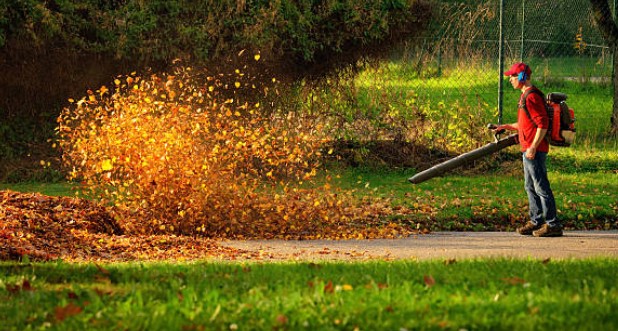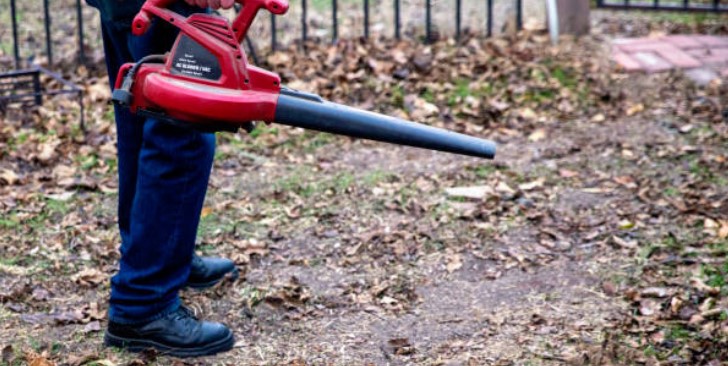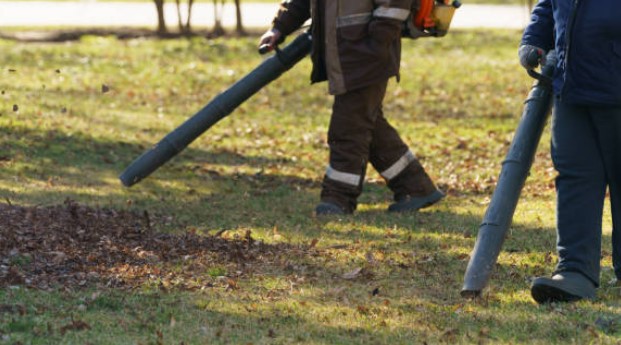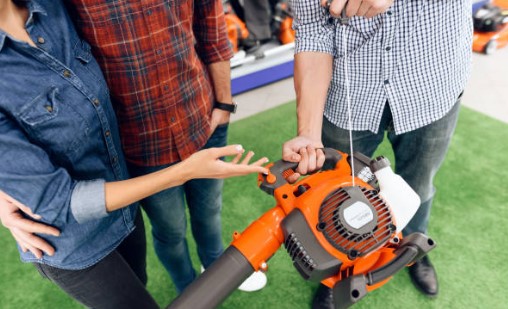Gas vs Electric Leaf Blower: Which is Better for Your Yard? | Pros and Cons
Dealing with dead leaves and other yard waste is one of the obstacles that every homeowner has to confront since keeping a yard looking immaculate is a task that must be performed throughout the year. The undertaking may appear to be difficult, but having the appropriate instruments might make all the difference in the world. When it comes to blowers for leaves, deciding whether to go with an electric or gas model can be a very important decision. Each kind comes with its own distinct set of benefits and drawbacks, both of which can have a significant effect on the way you maintain your yard. In this extensive article, we will examine the benefits and drawbacks of both gas vs electric leaf blowers, with the goal of assisting you in making an educated choice for your garden or yard.
What’s the difference between Gas Vs Electric Leaf Blowers?
Before diving into the specifics, it’s important to understand the fundamental differences between gas vs electric leaf blowers. Gas-powered blowers, as the name suggests, are fueled by gasoline and typically pack more power, making them suitable for larger yards and heavy-duty tasks. On the other hand, electric leaf blowers are powered by electricity and come in both corded and cordless varieties. They are generally quieter and more environmentally friendly but might not be as powerful as their gas counterparts.
Electric Leaf Blowers: Pros and Cons

Pros
Eco-Friendly
In an era of increasing environmental concerns, electric leaf blowers emerge as champions of sustainability. These blowers run on electricity, which means they produce zero emissions while in operation. This eco-friendly feature not only benefits your immediate surroundings but also contributes to a cleaner, greener planet. By choosing an electric leaf blower, you’re taking a step towards reducing air pollution, greenhouse gas emissions, and your carbon footprint.
Less Noise
You can envision a tranquil Sunday morning in your local area, where the sound of birdsong mingles with the gentle rustling of leaves in the breeze. Tranquility can be disrupted by the raucous roar of a leaf blower. This is where electric leaf blowers shine. This is where electric leaf blowers shine. Their quieter operation creates a more harmonious soundscape, minimizing disturbances for you and your neighbors. This quality makes electric blowers a fantastic option for those living in noise-sensitive communities or simply looking to maintain a serene environment while tidying up their yard.
Low Maintenance
When it comes to maintenance, electric leaf blowers are a breeze. Unlike their gas counterparts, they have fewer moving parts and don’t require oil changes, spark plug replacements, or fuel mixing. This means less time spent tinkering and more time spent actually getting the job done. By opting for an electric blower, you’re choosing a tool that’s not only efficient in performance but also in terms of the time and effort you need to invest in its upkeep.

Instant Start
Remember the frustration of repeatedly yanking the pull cord of a gas leaf blower, hoping it would finally roar to life? With electric leaf blowers, that frustration becomes a thing of the past. Electric blowers start with the simple push of a button or a trigger pull, offering instant and hassle-free operation. This feature is especially appreciated on chilly mornings or when you’re trying to get your yard work done efficiently without unnecessary delays.
Lightweight and Maneuverable
The convenience of the user is typically prioritised in the design process of electric leaf blowers. They are typically simpler to handle and maneuver around your yard as a result of their lower weight and more compact size in comparison to their gas-powered counterparts. Those individuals who might not have the physical strength to operate heavy equipment for lengthy periods of time might benefit tremendously from this. You’ll put less pressure on your arms and shoulders because to the lightweight design of electric blowers, which also enables you to cover more land with the same amount of effort.
Cons
Limited Power
While electric leaf blowers offer a range of benefits, their power might fall short when it comes to heavy-duty tasks. Gas blowers pack a more powerful punch, which can make a significant difference when dealing with wet, matted leaves or debris in larger yards. Electric blowers might struggle to match the performance of gas blowers in such demanding scenarios.
Cord Restrictions
Corded electric leaf blowers, though convenient in many ways, are restricted by the length of their power cord. This limitation can affect your range and mobility, making it challenging to reach every corner of your yard. While extension cords can mitigate this issue to some extent, they introduce additional logistics and the risk of accidentally unplugging the blower during operation.

Battery Life
Cordless electric leaf blowers operate on rechargeable batteries, which means they are limited by battery life. While advancements in battery technology have extended the runtime of cordless blowers, you might still find yourself needing to recharge or switch batteries during prolonged yard work sessions. This interruption can be frustrating, especially if you’re in the flow of your task.
Gas Leaf Blowers: Pros and Cons

Pros
High Power
When it comes to sheer power, gas leaf blowers take the lead. These machines are designed to tackle even the most demanding tasks with ease. Whether you’re dealing with a dense layer of wet leaves or stubborn debris, a gas leaf blower’s high-powered performance ensures that no mess is too formidable to handle. This makes gas blowers the go-to choice for homeowners with larger yards or those facing particularly challenging yard maintenance.
Mobility and Range
One of the standout advantages of gas leaf blowers is their freedom of movement. Unlike their electric counterparts, they are not tethered by cords, allowing you to cover vast areas without worrying about staying within reach of a power outlet. This enhanced mobility is especially beneficial for those with expansive properties, where a gas blower’s ability to reach every corner can be a game-changer.
Versatility
Many gas leaf blowers come equipped with versatile attachments that enable them to perform various functions beyond blowing leaves. These attachments might include vacuuming and mulching capabilities, turning your blower into a multi-purpose tool. This adaptability makes gas blowers a valuable addition to your yard care arsenal, offering solutions for various tasks without the need for separate tools.

Longer Runtime
Gas blowers have an advantage in terms of runtime compared to their battery-powered electric counterparts. Since they run on gasoline, you can expect them to operate for longer periods without the need for frequent refueling or battery changes. This extended runtime is particularly advantageous when you have extensive yard work to complete and want to maintain a continuous workflow.
Cons
Noise and Emissions
The high power of gas leaf blowers often comes with a drawback – noise. These machines tend to be louder than electric blowers, generating a considerable amount of noise during operation. This can be a significant concern if you live in a neighborhood with noise restrictions or if you simply want to maintain a peaceful atmosphere while working on your yard. Additionally, gas blowers emit exhaust fumes, contributing to air pollution and environmental degradation.
Maintenance Requirements
The trade-off for the increased power of gas leaf blowers is higher maintenance demands. These machines have more moving parts, which translates to more opportunities for components to wear down or malfunction. Regular maintenance tasks like oil changes, spark plug replacements, and fuel mixing are necessary to keep your gas blower in optimal working condition. This can add an extra layer of complexity and time commitment to your yard care routine.

Heavier and Harder to Start
Gas blowers are generally heavier than their electric counterparts due to the internal combustion engine and additional components. This weight can make prolonged use tiring and strenuous, particularly for those without a strong physical stature. Furthermore, starting a gas blower can be a bit of a challenge, involving manual priming and multiple pulls on the starter cord. This process might not always be as straightforward as pushing a button or pulling a trigger.
How to Find the Best Leaf Blower between Gas Vs Electric Leaf Blowers
Choosing the perfect leaf blower for your yard isn’t a one-size-fits-all decision. Your individual needs, the characteristics of your yard, and your personal preferences all play a significant role in making the right choice between gas vs electric leaf blowers. To ensure you’re investing in a tool that perfectly suits your requirements, consider the following steps:

Evaluate Your Situation
Begin by assessing your yard’s specific characteristics. Is it a small suburban lawn or an expansive rural property? Are there dense trees with a copious amount of leaves, or do you mainly deal with light debris? Understanding the size of your yard, the type of foliage you’re dealing with, and your regular yard maintenance tasks will help you determine whether you need the power of a gas blower or the convenience of an electric one.
Examine Products
Research and compare different models of both gas and electric leaf blowers. Look into their specifications, including motor power, airspeed, and air volume. These factors directly influence the blower’s performance. Gas blowers generally have a higher power output, making them suitable for heavy-duty tasks, while electric blowers vary in power but offer greater convenience and eco-friendliness.
Keep Ergonomics in Mind
Yard work can take a toll on your body, so prioritize your comfort and well-being. Opt for a blower with ergonomic features such as padded handles, adjustable straps, and a well-balanced design. A lighter blower might be preferable if you anticipate long periods of use, as it reduces strain on your arms and shoulders.

Read Reviews and Expert Opinions
Gather insights from both customer reviews and expert opinions. Real-world experiences can offer valuable perspectives on performance, durability, and any potential issues with specific models. Experts often conduct thorough testing and analysis, giving you a more informed view of how each blower performs under various conditions.
Check for Compliance with Regulations
Different regions might have regulations in place regarding noise levels, emissions, and usage hours for outdoor power equipment. Ensure that the leaf blower you’re considering complies with these regulations to avoid any legal issues. This is particularly important if you’re leaning towards a gas blower, as they tend to be noisier and produce emissions.
Consider Cord Length and Battery Life
If you’re leaning towards an electric blower, consider the cord length for corded models or the battery life for cordless ones. For corded electric blowers, make sure the cord length is sufficient to cover your entire yard without needing multiple extension cords. For cordless models, check the battery’s runtime to ensure it can handle your typical yard work session without frequent recharging.

Budget Considerations
Your budget is another crucial factor. Generally, gas blowers are more expensive upfront due to their higher power and additional components. Electric blowers tend to have a lower initial cost, but cordless models might require additional investment in spare batteries. Keep in mind that long-term maintenance costs, such as fuel and maintenance for gas blowers, should also be factored into your decision.
Try Before You Buy
Whenever possible, try out the leaf blowers you’re considering before making a purchase. Test their weight, balance, and ease of use to ensure they match your physical capabilities and comfort level. This hands-on approach can help you make a more confident decision.
FAQs
Are gas leaf blowers noisier than electric leaf blowers?
Yes, gas leaf blowers are generally noisier than electric leaf blowers. Electric blowers produce significantly less noise, which can be a consideration if you live in a noise-sensitive neighborhood.

Can electric leaf blowers handle heavy debris and large yards as effectively as gas leaf blowers?
Electric leaf blowers can handle lighter debris and smaller yards effectively. However, for heavy debris and larger yards with dense foliage, gas blowers are usually more powerful and suitable.
What are the main environmental benefits of using an electric leaf blower over a gas-powered one?
Using an electric leaf blower produces zero emissions, which helps reduce air pollution and your carbon footprint. This makes electric blowers a more environmentally friendly choice compared to gas blowers.
How do the maintenance requirements differ between gas and electric leaf blowers?
Gas leaf blowers require more maintenance, including oil changes, spark plug replacements, and fuel mixing. Electric leaf blowers have fewer moving parts and generally require less maintenance, making them more convenient in this aspect.

Summary
In the showdown between gas vs electric leaf blowers, the electric option emerges as the winner, striking a balance between power and convenience. Electric blowers shine with their eco-friendliness, hushed operation, and low maintenance, fitting well in smaller yards and eco-conscious neighborhoods. They feature easy starts, a lightweight build, and maneuverability, although their potency may be limited in heavyweight situations due to power constraints and cord/battery limitations.
On the flip side, gas blowers embrace sheer power, proving crucial for expansive properties and demanding tasks. While mobility and attachments add versatility, noise and emissions, come as drawbacks. Despite their higher maintenance demands, their ability to tackle hefty tasks and lengthy sessions remains unmatched.
Ultimately, your decision hinges on yard size, debris type, noise regulations, and personal inclinations. Electric blowers emerge as an efficient, eco-friendly, and quieter choice for regular upkeep, while gas blowers provide the muscle needed for formidable challenges. By sizing up your needs and pondering the pros and cons, you’ll confidently pick the leaf blower that turns yard work from drudgery into gratification.
Related Articles